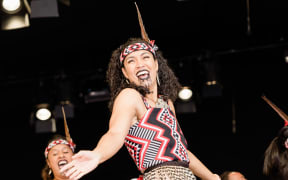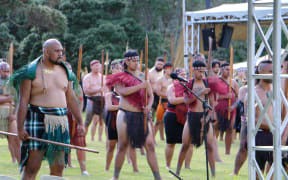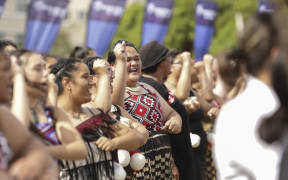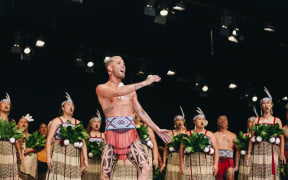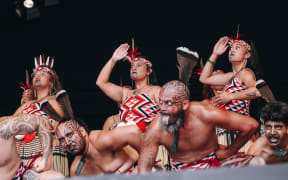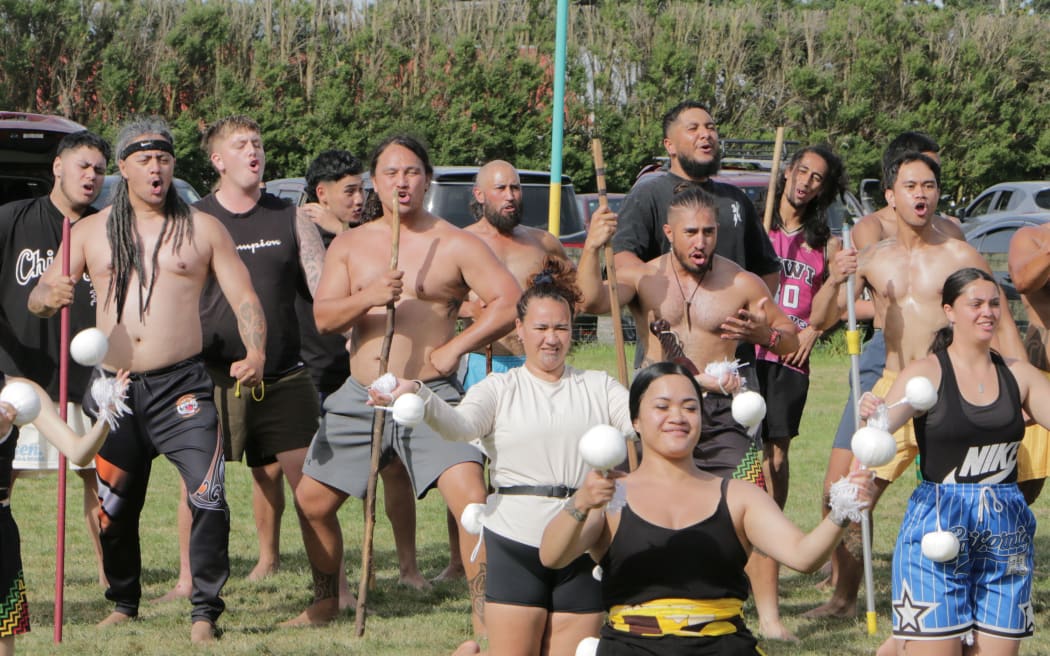
Most of the performers were practising for their first time on the national stage. Photo: RNZ / Pokere Paewai
Te Matatini is one of the biggest events in te ao Māori, the kapa haka festival drawing more than a million television viewers last month. While many eyes were on big rōpū and heavy hitters, like Ngā Tumanako, Te Whānau-a-Apanui or Te Arawa, RNZ's Pokere Paewai joined one group from Dannevirke as they prepared to take the big stage for the first time.
It's a hectic Saturday at the Dannevirke Sports Centre, an old hall in the centre of town. Basketballs fly around while members of the local kapa haka group, Te Ringa Kaha, take a short break in their intensive training.
For weeks, dozens of whānau have been gathering here for practice sessions that sometimes extend well past midnight. For hours and hours they practise their waiata, haka, movements, their routine and their timing - again and again and again.
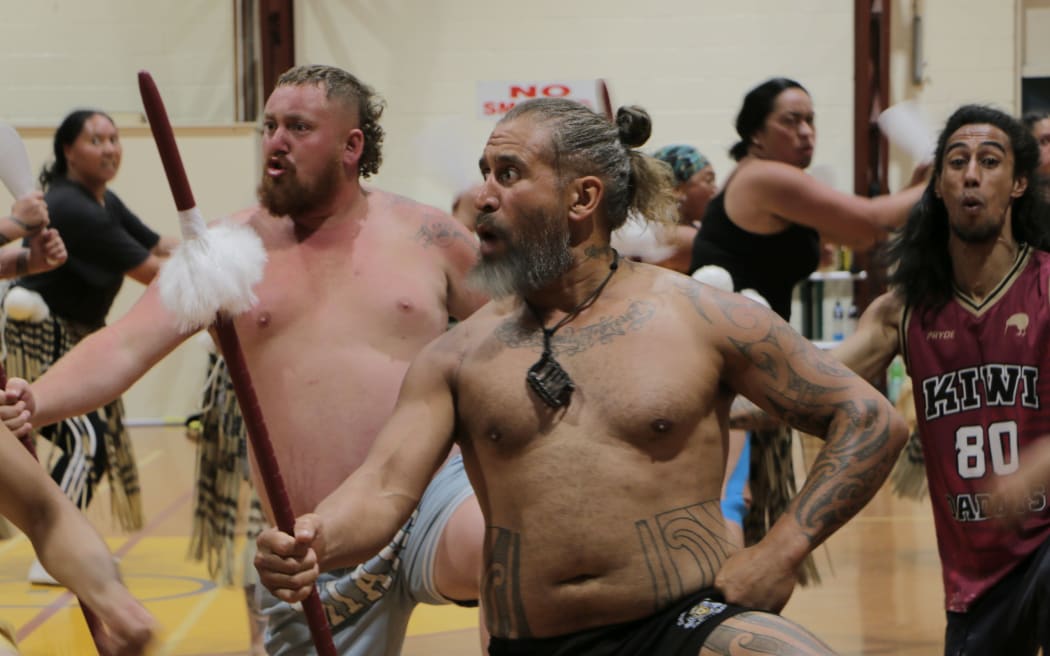
Photo: RNZ / Pokere Paewai
The pressure is on because this small Rangitāne rōpū has made it to the national stage for the first time ever. They'll perform at the Olympics of kapa haka, Te Matatini, before a packed out Eden Park.
It's also the first time a rōpū from Dannevirke - population 5000 - has taken the stage.
When I joined them that Saturday afternoon at the local sports centre, the performers were just weeks away from their biggest show. That morning, the rōpū had already run through their whole bracket five or six times. Each full bracket is more than 20 minutes long.
Listen to Pokere Paewai's documentary on Te Ringa Kaha's buildup to Te Matatini.
Manukura tānē and tutor Wharemako Paewai said even reaching Te Matatini was a dream come true.
"This hapori, this community has been dreaming of having our own kapa since forever, and finally doing it and finally getting on the big stage is a bit surreal to be honest.
"We were worried if our small community were ready for this type of commitment, this type of pressure, but we seem to be doing okay," he said.
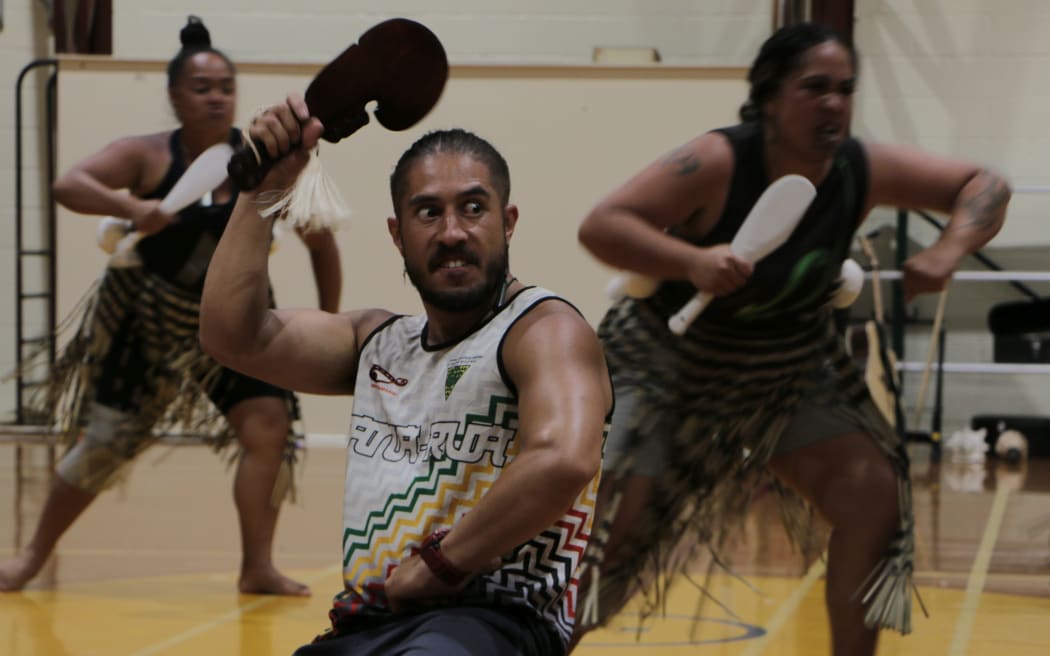
Photo: RNZ / Pokere Paewai
For most of the performers it was their first time on the national stage.
Manukura wāhine Zenna-Maria Gatonyi Hepi-Te Huia was one of the few who have stood at Te Matatini before. She said she was thrilled the rōpū made it after their first regionals.
"I didn't actually expect it, we had a few teams in that year... they're experienced for sure. It was just amazing that we actually made a spot, so [I'm] very very humbled and proud."
Te Matatini is the pinnacle of performance in the world of kapa haka, but everyone has their own reasons for performing. Some of the big rōpū and iwi are there to win, while others want to put their kaupapa in front of a national audience. Several more are just there for the experience.
One of the kaihaka, or performers, Aroha Ripeka Kingi said one thing she loves about kapa haka is the ability to incorporate local stories and history into the performance.
"Ko te tuku i ngā kōrero o te kainga, ahakoa kāore te kūmara e kōrero mo tōna reka engari ka tika he tū whakahīhī i runga anō i te hūmārie."
Kingi said she loved seeing her tamariki singing along with the rōpū as they performed.
And that's the thing, kapa haka is also about the next generation and Te Matatini has been one of the core features of the Māori renaissance, strengthening performing arts and storytelling. In many rōpū, parents stand side by side with their children on the Te Matatini stage.
The entire community of Tāmaki Nui-ā-Rua, Dannevirke, is behind them. There is a group of whaea, aunties, and kaumātua who were there to watch every practice and cheer their team on.
That whānau support is paramount, because the work to prepare for Te Matatini begins more than a year out. There's fundraising, organising food for noho marae, then there's the composition of waiata, learning the words and actions, and lots of practice.
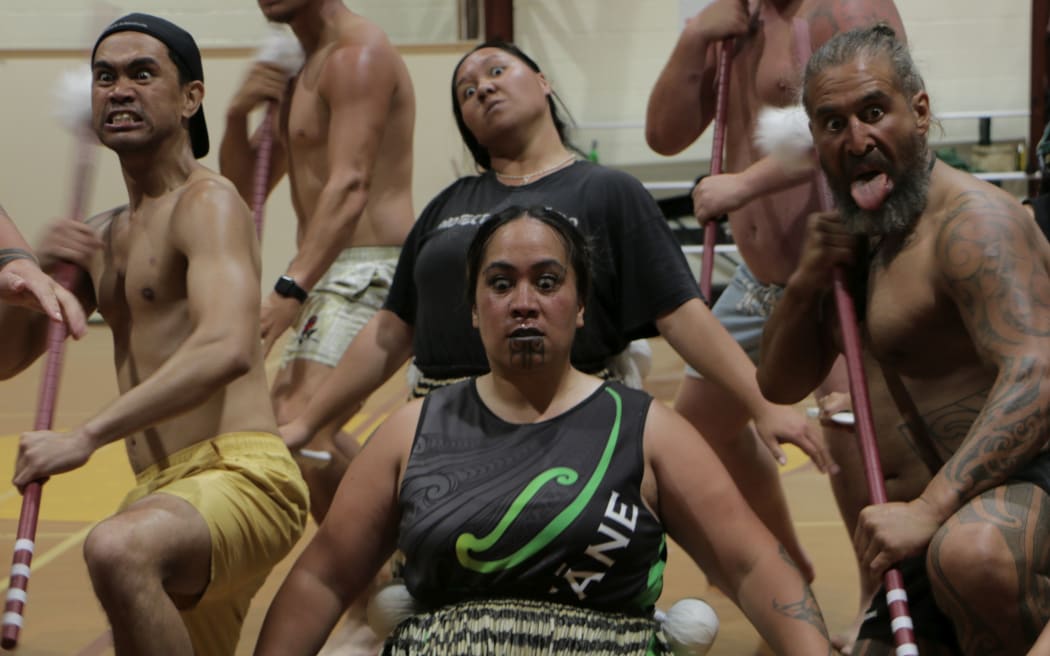
Photo: RNZ / Pokere Paewai
Ataneta Paewai was one of the team working on the kākahu or costume for the rōpū. The patterns of their tātua (belts) and tīpare (headbands) are dyed in the rōpū's colours of white, gray and maroon.
She said she was happy to do this mahi, and praised the performers for all the work they were putting in on top of their regular work hours.
"[I'm] really proud of this group, they're a young group. I look around the room; we've got a few teachers in there but mostly you know grassroots rural workers, agricultural, shearing, fencing, farmers, so really proud of them."
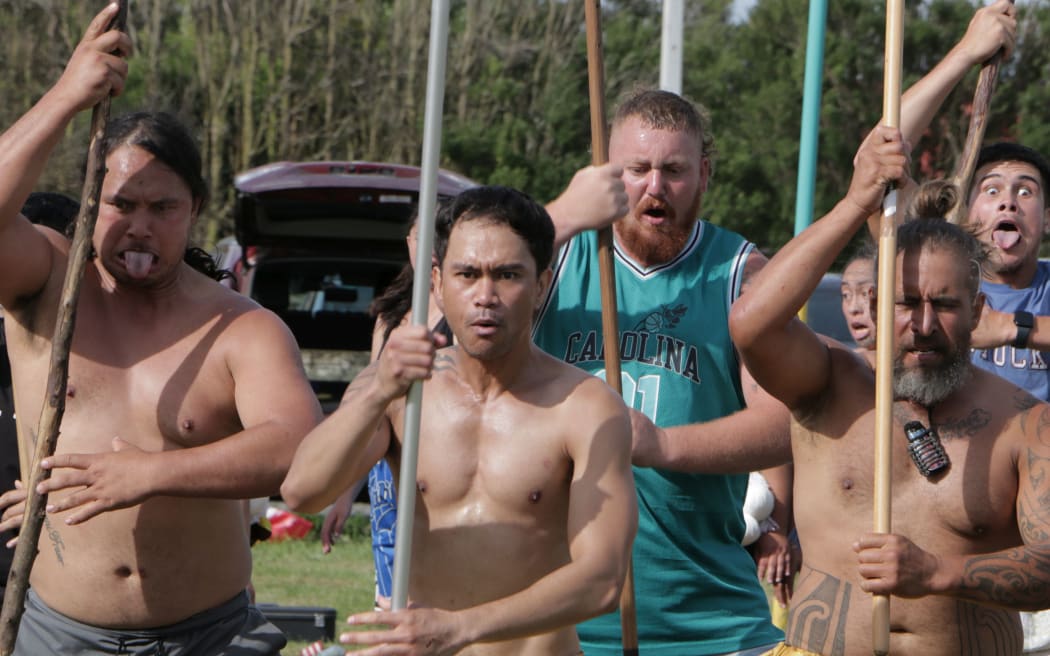
The group is made up of people working in a range of areas from shearers to teachers. Photo: RNZ / Pokere Paewai
Te Ringa Kaha took to the stage on 22 February at Ngā Ana Wai/ Eden Park, day one of Te Matatini.
When I joined them backstage beforehand, there were plenty of nerves, but also a feeling of excitement zipping around the dressing room, as they warmed up their voices.
Then, they went through the canvas tunnel onto the giant stage to face te ao Māori and the nation for half an hour.
After they'd left it all on the stage, Paewai said he was "shattered", but added that this wasn't the last time the world would see Te Ringa Kaha.
"I'm happy, e kore a muri e hokia. We did what we set out to do and now I'm just happy to spend time off the floor with the whānau and have a good vibe for the rest of the Matatini.
"It's only our first one, it's not gonna be our last so we've just got to enjoy it. Kua mahia te mahi ināianei ka riro ai ngā hua."
